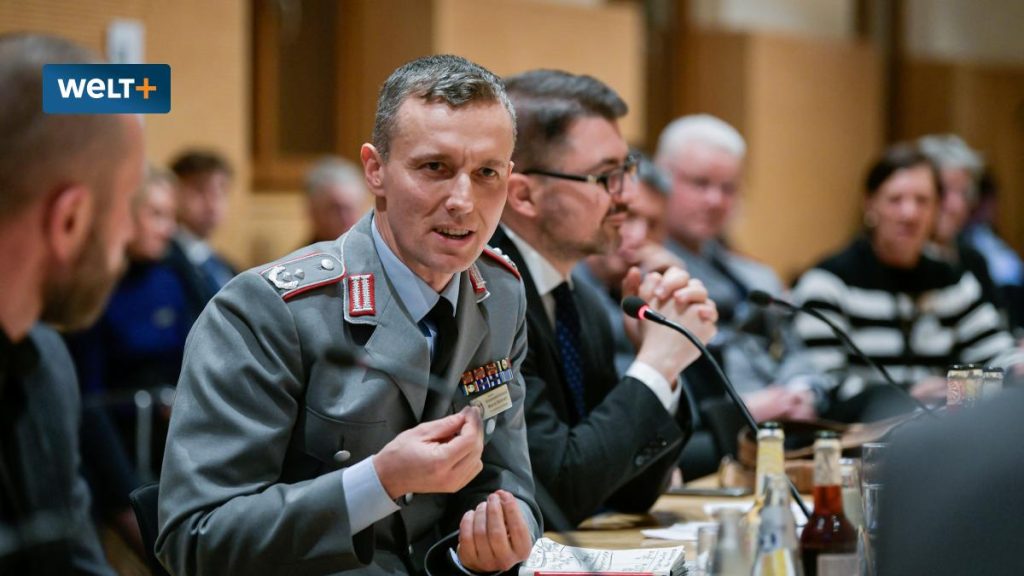Oberstleutnant Marcel Bohnert, who serves as the deputy chairman of the Bundeswehrverband, has played a key role in the development of the classified document “Operationsplan Deutschland.” In an exclusive interview with WELT, he sheds light on the crucial need for Germany to prepare for long-term and sustainable changes. Bohnert emphasizes the importance of being proactive and forward-thinking in order to address the evolving global security landscape and ensure the country’s defense capabilities are robust and resilient.
According to Bohnert, the “Operationsplan Deutschland” outlines scenarios that could pose serious threats to the nation’s security, including cyber attacks, terrorism, and armed conflicts. He stresses the need for strategic planning and coordination among various government agencies and partners to effectively respond to these challenges. Bohnert underscores the importance of investing in modern technology and training for the Bundeswehr to adapt to new threats and maintain a strong defense posture.
Bohnert also highlights the significance of Germany’s role within NATO and the European Union in addressing security challenges and promoting stability in the region. He emphasizes the need for closer cooperation and coordination with allies to enhance collective defense capabilities and deter potential adversaries. Bohnert acknowledges the importance of maintaining a strong transatlantic partnership with the United States, while also recognizing the need for greater European autonomy in defense and security matters.
In the interview, Bohnert addresses the issue of defense spending in Germany and stresses the importance of meeting NATO’s target of allocating 2% of GDP for defense. He discusses the need for increased funding to modernize the Bundeswehr and ensure it remains a capable and efficient fighting force. Bohnert also calls for greater public awareness and support for defense investments, highlighting the vital role of the military in safeguarding the nation’s security and interests.
Bohnert emphasizes the importance of strategic foresight and long-term planning in preparing for future security challenges. He points out the need for continuous assessment of threats and risks, as well as the development of flexible and adaptable defense capabilities. Bohnert underlines the need for a comprehensive approach to security that encompasses not only military measures but also political, economic, and social aspects to create a holistic and resilient defense strategy.
In conclusion, Bohnert’s insights underscore the critical need for Germany to adapt to the changing security environment and invest in modernizing its defense capabilities. He emphasizes the importance of collaboration with allies and partners to enhance collective security and promote stability in the region. Bohnert’s interview highlights the challenges and opportunities facing the Bundeswehr and the country as a whole, underscoring the importance of proactive and forward-thinking approaches to security and defense.














